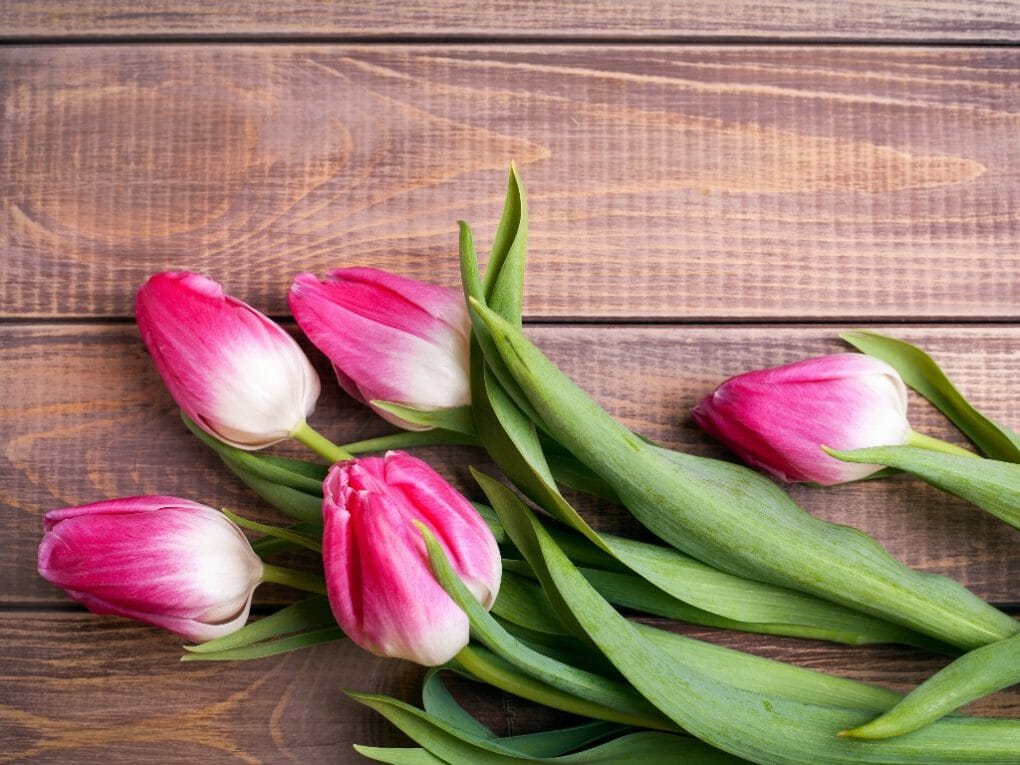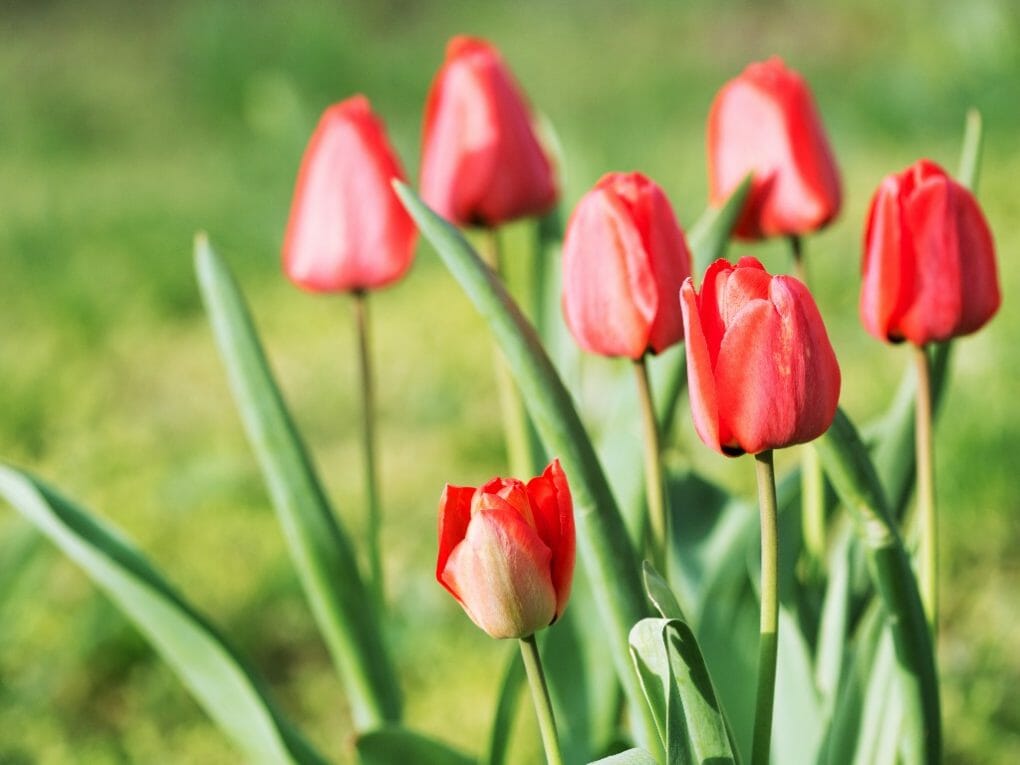Do Squirrels Eat Tulip Bulb? 10 Ways To Protect Your Tulip Bulbs From Squirrels

Squirrels love to eat tulip bulbs. Without defenses, they can be easily dug up, devoured, or moved to another location. You’ve probably encountered a squirrel if you’ve spent much time in a garden. One of the sad things that can happen to a gardener is to plant a large quantity of spring-blooming bulbs in the fall, only to find a few months later that squirrels and other rodents have dug them all up, leaving them without a spring flower display. Squirrels prefer popular bulbs like crocuses and tulips but occasionally consume others.
Table of Contents
Why Squirrels Eat Tulip Bulbs?
Since these rats cannot digest cellulose, their survival depends on the protein-rich plant structures found in nuts and bulbs. The gardener is a squirrel’s best friend since squirrels always dig to discover (and conceal) nuts and bulbs. Another explanation is that they are looking for food. In particular, with undeveloped bulbs. Squirrels mistake the ground for a good hiding place so that they can find food again later. When squirrels don’t locate any rewards where they’ve dug, they often leave the area in disarray. Many creatures, such as squirrels, moles, and chipmunks, perceive bulbs to be a delectable treat. Most gardens have this problem. Because of this, they were cultivating particular kinds of bulbs can be a challenging endeavor.
10 Ways To Protect Your Tulip Bulbs From Squirrels
Avoid Fertilizer That Has a Strong Odor
Animals like squirrels and chipmunks, as well as digging dogs and cats, may be attracted to the pungent odor of natural fertilizers like bone meal, fish emulsion, blood meal, and others. If you’ve had problems with animals digging up your garden, you should skip natural fertilizers and go straight for synthetic ones.
Cover Your Bulbs
Covering the planting area with chicken wire or hardware cloth is a tried-and-true method for keeping hungry rodents like squirrels and chipmunks away from your bulbs. Hardware cloth is a metal mesh similar to chicken wire but has a finer grid design.

Chicken wire or hardware cloth can be used in one of two ways to shield your light bulbs from damage. A piece of the material can be sized to fit the entire planting space by simply cutting it to size. After planting the bulbs, set them on top of the dirt and anchor them with stakes or heavy objects like rocks or stones. You can conceal the wire using a mulch of shredded leaves or bark. Even though the bulb stems will be able to grow through the openings in the chicken wire or hardware cloth, the bulbs themselves will be safe from any digging animals. This method is most effective in wide, unobstructed spaces where you won’t work around existing plants.
Alternatively, you can construct simple cages from chicken wire or hardware cloth, place the bulbs inside, and then set the cage in the planting hole when protecting your bulbs from creatures that tunnel, like voles, these enclosures are your best bet.
Plant Your Bulbs Together With Other Plants That Squirrels Don’t Like
Planting your bulbs alongside or near plants that rodents like squirrels and chipmunks dislike is another common and successful method of protecting your bulbs from being dug up.
Chipmunks are known to eat tulip bulbs, so planting them alongside plants that squirrels and chipmunks don’t like is an effective pest control method. It is similar to companion planting in the garden, which can prevent insects and animals.
Allium, daffodil, and hyacinth bulbs are top of the list. These three options are not only excellent bulbs for spring color, but they are also compatible with simultaneous fall planting.
Not only do critters like squirrels avoid geraniums and marigolds, but they also detest the smell of these flowers. If you have any in containers, set them up next to your freshly planted bulbs.
Use Natural Repellents
Several organic repellents on the market may do wonders for keeping pests out of your garden.
You need not limit your purchases to repellents for squirrels and rodents; organic deer repellents can also be helpful. Red pepper flakes are an additional natural repellent that is helpful against squirrels. A liberal sprinkling of these flakes over planted bulbs can effectively discourage hungry squirrels from digging.
Prepare a Feeding Area for Squirrels
If you cannot deter squirrels from destroying your garden, consider creating a squirrel feeding station in an unrelated section of your yard. The idea is that if squirrels have an easy way to get the kind of food they like, they won’t need to dig up underground for sustenance.
Corn, almonds, sunflower, and pumpkin seeds are all excellent choices for your squirrel feeder.
Leave no traces of your bulb planting in the garden if you want squirrels to stick to the feeder rather than your plants. Always remember to tidy up the area around the bulbs after planting. Mulch can be used to cover up the spot and make it look like nothing has been buried there recently, which may deter the squirrels.
Add Sharp Gravel
If you are planting bulbs in a garden bed already set up, add sharp gravel to the soil around the bulbs. When squirrels find something with sharp edges, they often leave to look for food elsewhere. Sharp gravel can be bought at home improvement stores or landscape supply yards. It is usually used to help water drain away from paved areas. Squirrels might also stop digging if you crush oyster shells, which have a rough, unpleasant feel.
Make Digging A Challenging Work

Place planting supplies next to the bulbs in such a way that digging will be difficult. Use bricks, paving stones, large rocks, or bulbs as deterrents. If all else fails, keep a live chicken nearby to scare away squirrels!
Clean Up Where You Plant Things
When you’re done planting your bulbs, remove any papery layers that may have come off, broken bulbs you didn’t plant, and other debris. Squirrels might notice these things and start digging to see what else you’ve left out for them.
Delay Planting Time
In early fall, squirrels and chipmunks are most active in the food search, and by late October, after they have stashed away most of their winter food, things begin to calm down. For best results, delay planting your spring-flowering bulbs until the squirrels are finished stocking up on nuts for the winter.
Make Sure That Your Bulbs Planted at the Appropriate Depth
If you plant your bulbs at a depth of 6-8 inches (15-20 centimeters), it is more probable that squirrels won’t get to them. Most squirrels won’t dig more profoundly than a few inches below the soil’s surface.
When planting bulbs at this level, it is considerably simpler to do it with a tool with a long handle, such as a bulb planter.
